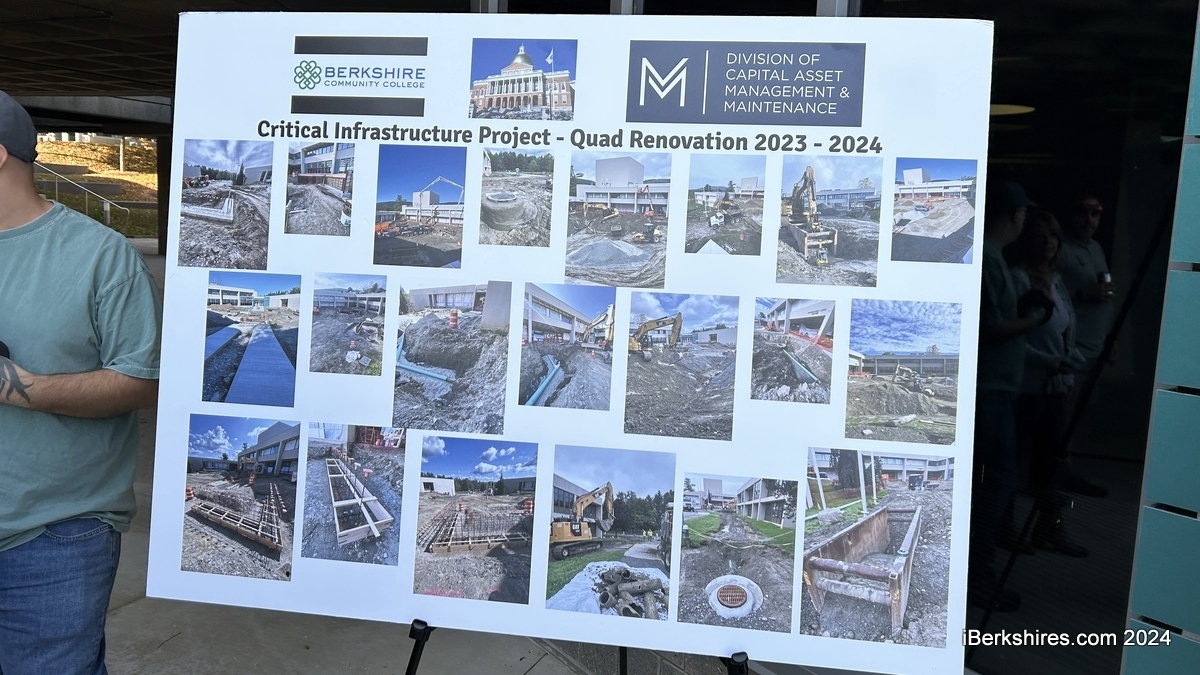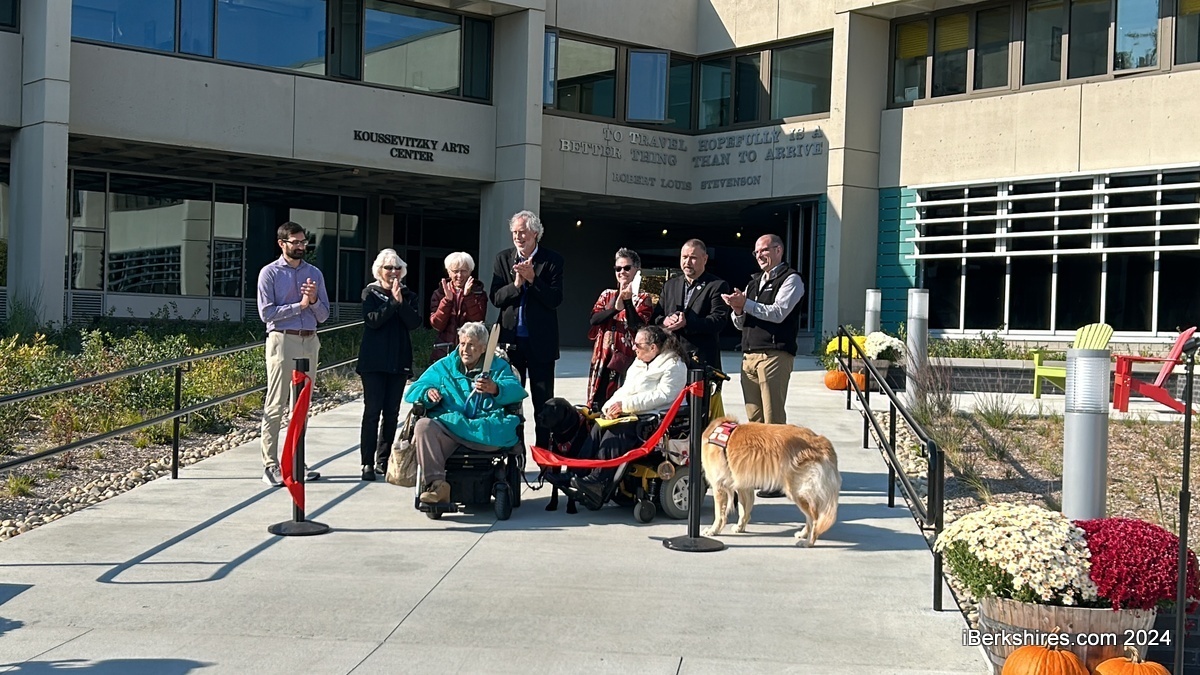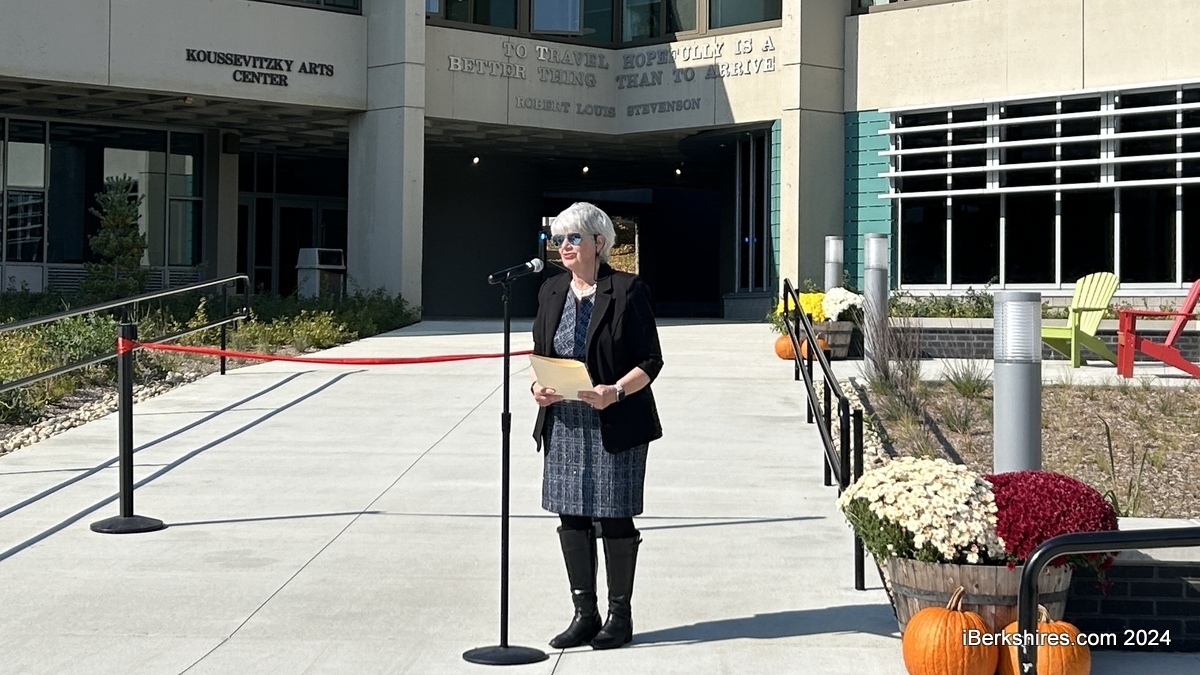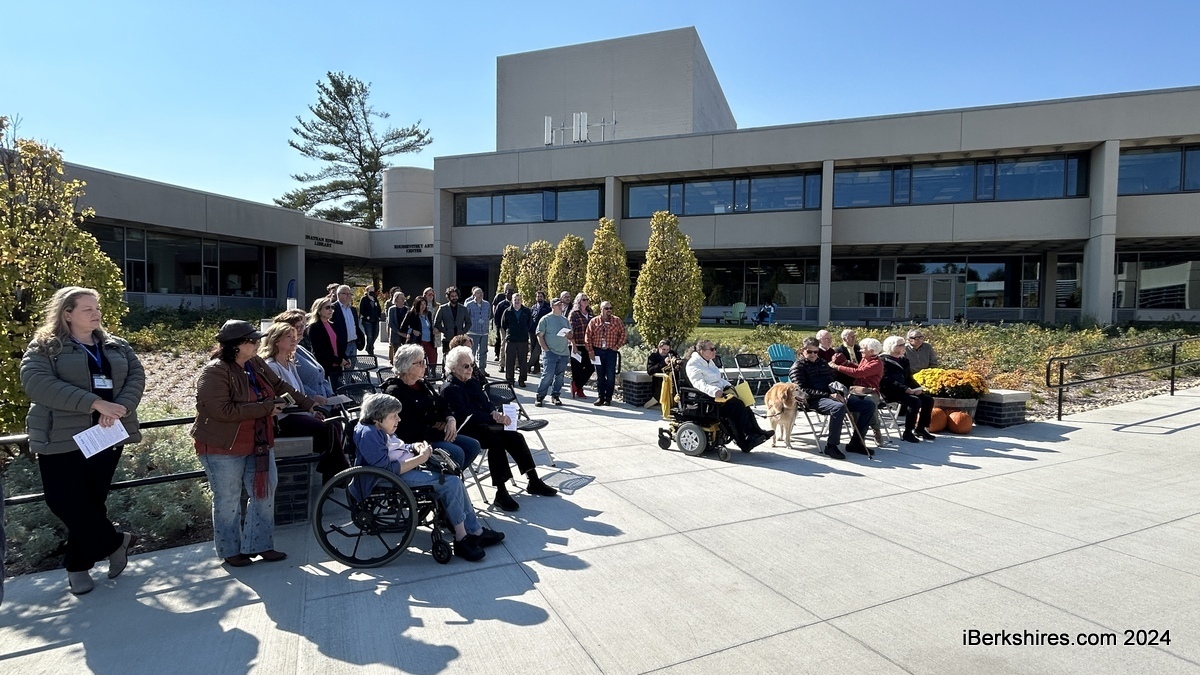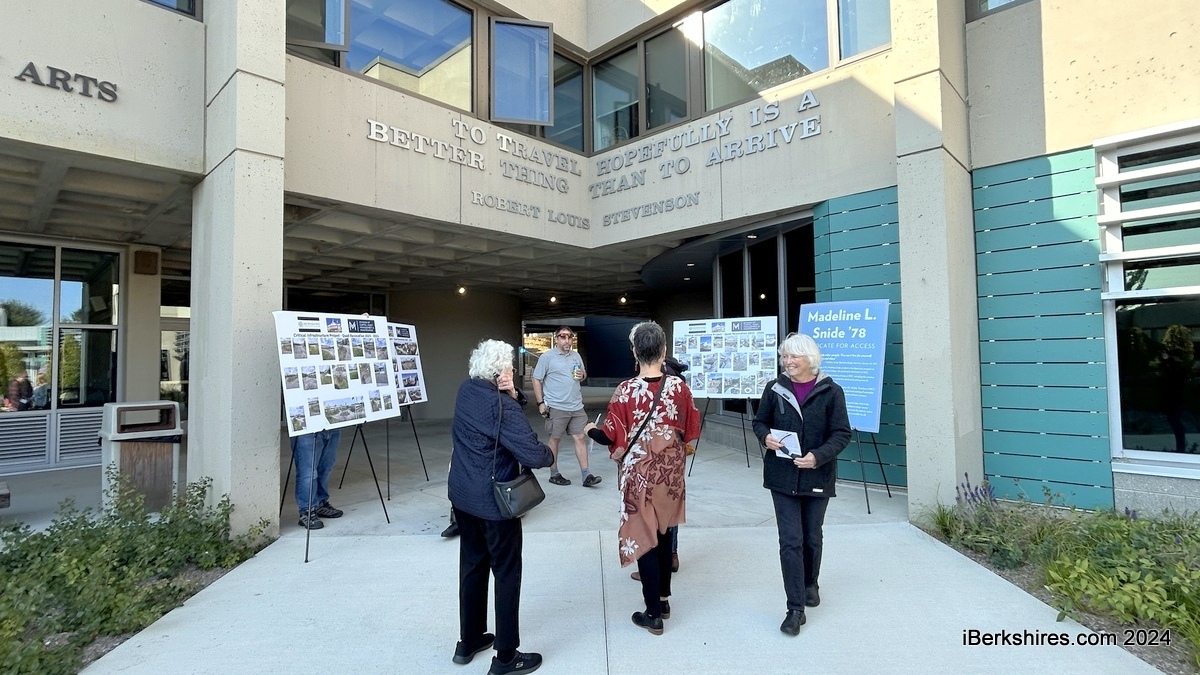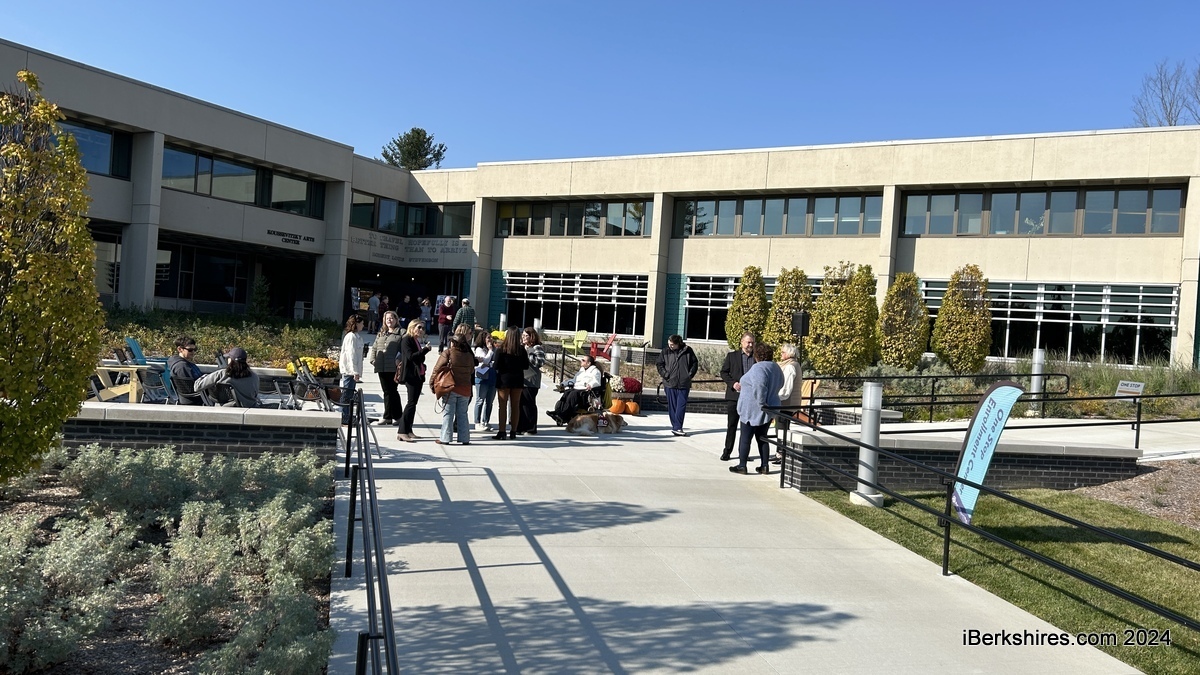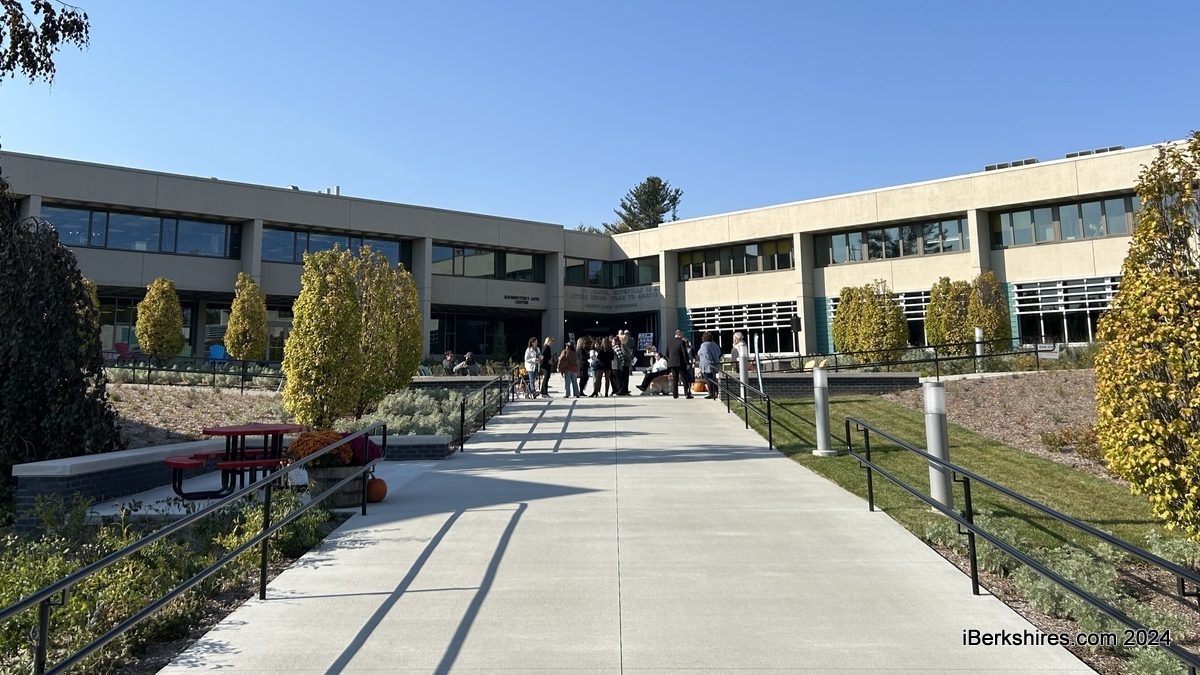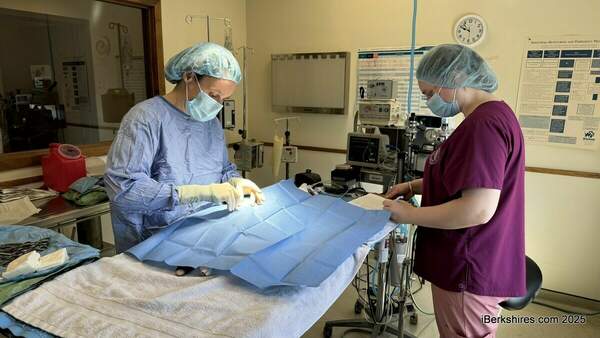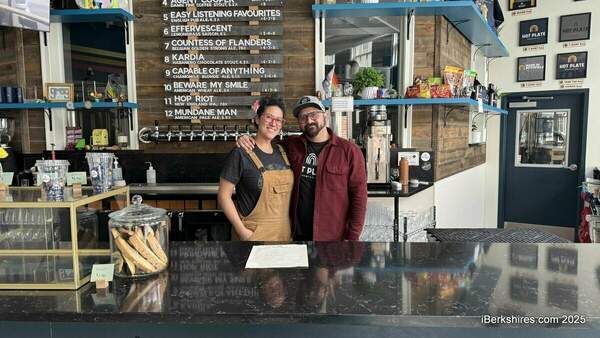BCC Cuts Ribbon on Accessible Quad
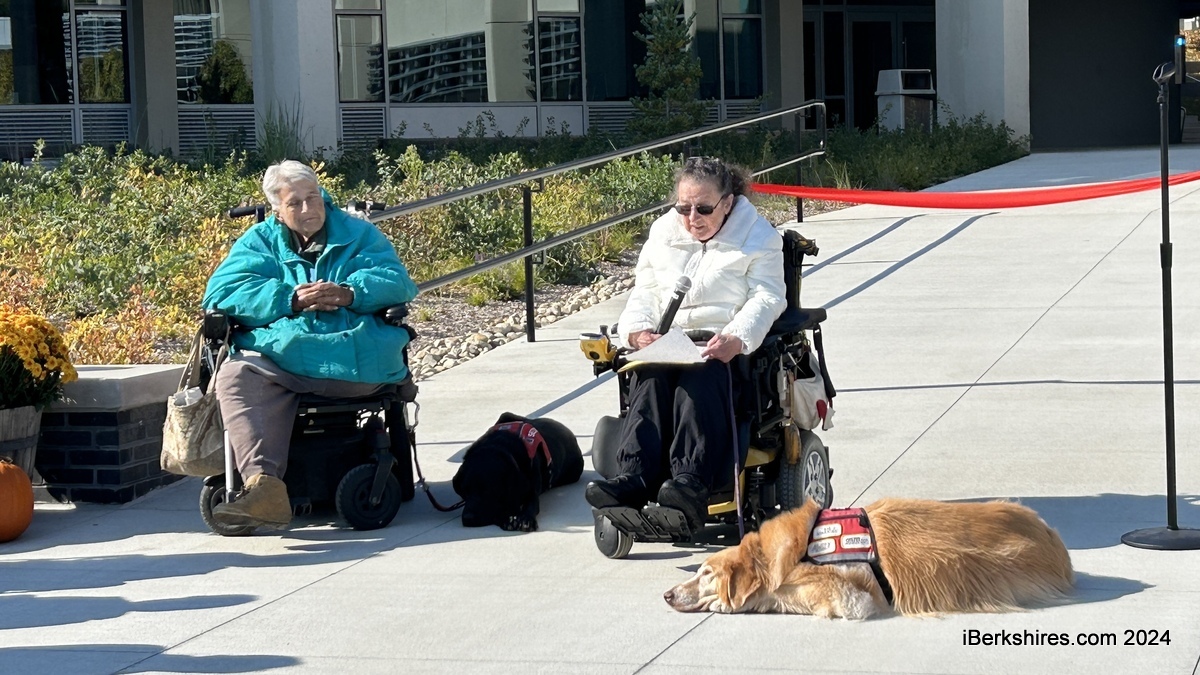
PITTSFIELD, Mass. — Whether you are on foot, using a mobility aid, or pushing a baby stroller, the Berkshire Community College quad is now navigable.
On Friday, the college community cut the ribbon on its new, accessible quad. It honors Madeline Snide, a 1978 graduate and the first paraplegic to enroll at the BCC who is credited for inspiring change on campus.
"Madeline did not live long enough to see all her hard work come to fruition but I know she feels it," said Merle Ferber, a disability rights activist who worked along Snide.
Pat Sheely, a BCC alum and board member of United Cerebral Palsy, explained that she was "miserable" to be around the first two years she had her disability.
"Madeline is one of three people who taught me that there is life after a disability," she said, adding that Snide's achievements were overwhelming.
The overhaul included removing cracked concrete, leveling steep areas, and adding railings and other ADA elements. The quad cost about $4 million and was part of a $10 million critical infrastructure improvement project funded by the Baker-Polito administration.
President Ellen Kennedy pointed to the campus' brutalist architecture, which was popular in the early 1970s when it was built. While the stylistic choice was loved by some and disliked by others, its difficulty for those using a wheelchair or mobility aid was undisputed.
"It was at a time when — and this is no aspersion to anyone who was working in architecture or anyone who was doing anything in life at that time — when ableism was running rampant," she explained.
"When people were not thinking at all about accessibility and how to make places universally accessible to all."
No buildings are officially more than two stories but the hillside campus is on nine levels. Kennedy said the accessibility improvements are ongoing, as there are still doors and other aspects that do not meet everyone's needs.
"Although we have come a long way and we're really proud of that, we have a long way to go," she said.
"So we're grateful for everything we've done but I want to be very clear, we know we have more work to do."
As a student in the early 2000s, City Council President Peter White worked to get an elevator installed in the Jonathan Edwards Library. His peers had to navigate through a utility closet to get to the library, which was unsafe and not dignified.
White and other students were able to secure $250,000 from then Gov. Jane Swift for the elevator and this was White's first experience with government. He credits this experience for sparking his long-lasting interest in local politics.
"Being here today, knowing that the college is in such great hands with all of you who make this place what it is and knowing that students don't have to fight for accessibility rights anymore, that's huge and you all deserve a round of applause for that," he said.
"This is more than what I could have imagined after seeing this place in the construction. Looking at it, the rise and the run looks good, all things that I had to learn throughout the process of getting the elevator put in."
Snide passed away in 1986 at age 57 but her impact on the campus lives on through wider, paved pathways, elevator installations, and the first dedicated parking area for vehicles used by or transporting disabled individuals. The $500,000 parking lot was completed in 1983 with federal funding.
Kevin Drumm, a 1976 graduate, worked with Snide on the college paper and described her as a "joyous icon." Etched into his mind is an image of her husband, Arthur, assisting her around campus.
"She shared that spirit all the time, making those around her simply feel good about being around her," he said.
"If she ever saw her physical immobility or her chair as a burden, you'd never know it by interacting with her day-to-day. She's just about the most positive person I have ever met."
Drumm described his "Norman Rockwell" life growing up in Lee and how Snide opened his eyes to a world he had not previously known, just as his experience at BCC did. Before this, he didn't know anyone permanently assigned to a wheelchair.
"Knowing her made me a better person, a more appreciative person, a more positive person, and a better student life professional and community college president concerned with access," he said.
"Because through knowing her, I could put myself in other shoes to help all students in their college endeavors. Through my work at a number of different colleges over the course of my career, I often tried to put myself in her shoes and that helped me to be a better person."
Disability Resource Center coordinator Pam Farron looked around at the infrastructure and said, "We've come a long way." She has been advocating for BCC students since 1995 and detailed earlier accommodations.
"We moved classes to accommodate students who could not climb stairs. We purchased special furniture, desks, tables, and chairs to be moved every semester to every class that that student had. We offered alternative classes when students' preferred course selection was inaccessible and it was unable to be moved. I remember thinking of the student who really wanted to take photography, but the darkroom was inaccessible and we had no other offer so she had to take a different class," she said.
"We spent hours in our testing center, reading exams to students who are blind or have low vision or were dyslexic, sitting right by them the whole time, them getting more and more anxious as we're waiting for them to give us their answers. We scribed for students who had limited to no use of their hands and we hired peer note takers in their classes because some of our students weren't able to take notes for lots of different reasons."
Farron said that today, BCC students with disabilities can fully participate in their education and can do it with dignity and independence. She described additional accessibility improvements the college has made and ongoing efforts to improve its website.
"This is so important," she said.
Snide joined the liberal arts program at BCC at age 45, determined to fulfill her dream of becoming a journalist. In 1978, she graduated with honors, earning her associate of arts degree. An accessibility fund has been established in her honor.
Tags: accessibility, BCC,

